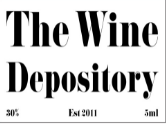Availability:
In stock
SKU
CB25B8E9-7925-4891-AD22-A055E36AEEED
Vieux Chateau Certan Pomerol Bordeaux 2011
$550.00
Vieux Chateau Certan was the Right Bank wine of the 2011 vintage. As it is every year, Vieux Chateau Certan 2011 is stunning. I drank a bottle in January 2011 and it was so good, we hosted a dinner exclusively of 2011 Bordeaux. A vintage that appears was underrated at En-Primeur and release time.
Vieux Chateau Certan shows dark fruits, olives, oak, coffee, concentrated, compact and tightly wound. Vieux Chateau Certan looking great now, but it has a decade or two (or three) ahead of it.
| Brand | Vieux-Chateau-Certan |
|---|---|
| Year | 2011 |
| Wine Case Size | 1 Bottle |
| Wine Bottle Size | 750ml |
Write Your Own Review
Customer Questions




